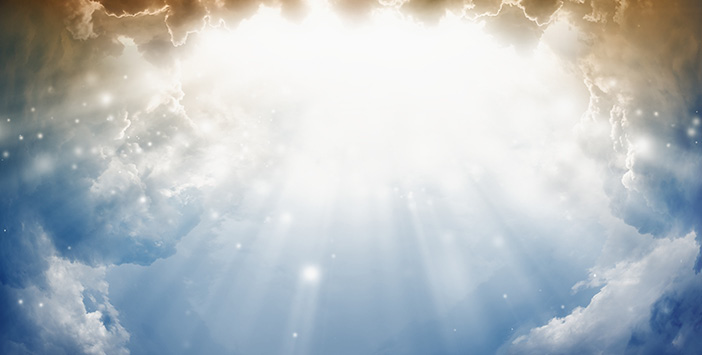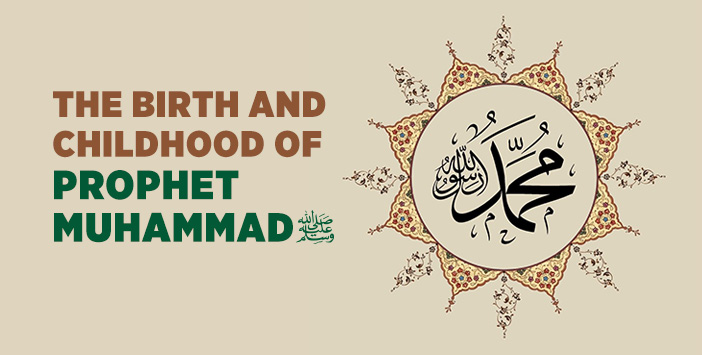The young Muhammad -upon him blessings and peace- was protected by the Almighty from the evil habits of his society and times. He spent his youth immersed in moral purity in a way deserving of carrying the duty of prophethood, which a bright future stored for him.
The man with the noblest lineage had undoubtedly also embodied the highest moral values among his people well before beginning his mission as a Prophet. His superlative generosity extended above all to his neighbors and he showed others a magnanimity and forgiveness that prevented him from harming anyone in any way whatsoever. Quarrelling and fighting, for him, were things absolutely unheard of. Combined with all these traits also was an unprecedented dependability, leading his peers to nickname him al-Amîn, the trustworthy, and al-Sâdiq, the honest.[1]
The Messenger of Allah -upon him blessings and peace- was once asked whether he had ever worshipped the idols or drank wine before Prophethood. Replying to both questions in the negative, the Blessed Prophet -upon him blessings and peace- then went on to affirm:
“Even though I did not know about the Book and Faith, I somehow knew the Meccans were indulging in disobedience to Allah.” (Diyarbakrî, I, 254-255)
The Prophet -upon him blessings and peace- recounts another time during his childhood when he experienced the protection of the Almighty:
“Still a young boy, I was playing with the boys of Quraysh, carrying stones from one place to another. To carry the stones with more ease, the other boys took off their garments and placed them over their shoulders, on top of which they began placing the the stones. Just as I was intending to do the same, I felt a very hard punch by someone I could not see.
‘Leave your garment on’, was all I heard him say.
So I left my garment on and continued to carry stones dressed, the only one among my friends who still had his clothes on.” (Ibn Hishâm, I, 197)
“Another similar incident predating the onset of Prophethood occurred during the rebuilding of the Kaabah, when the young Muhammad -upon him blessings and peace- was carrying stones on his shoulders with his uncle Abbâs, who advised his nephew to put his garment over his shoulders so as not to hurt himself. But when he tried to comply, the young Muhammad -upon him blessings and peace- collapsed on the ground, and with eyes fixed on the skies, all he could do was to ask his uncle for his garments back so he could cover his body.” (Bukhari, Hajj, 42)
Although strolling naked in certain circumstances was deemed acceptable at the time, the Prophet -upon him blessings and peace- never walked in such a manner utterly unacceptable by Islam.
One can also remember the conversation between the Prophet -upon him blessings and peace-, still twelve year old child at the time, with Bahira, for an ample idea of his attitude to Meccan wrongdoings. When Bahira asked the child to speak the truth in the name of the idols Lât and Uzza, the response he got was:
“By Allah, I never hated anything more than Lât and Uzzâ; so do not ask me anything in their name.” (Ibn Ishâq, p. 54; Ibn Saad, I, 154; see also Ahmed, V, 362)
Umm Ayman, the caretaker of the Blessed Child, reports that Quraysh used to pay homage to an idol called Buwaabah, where they would organize a special festival in its honor on a particular day each year, consisting of remaining next to the idol all day long and shaving their heads in reverence. Like other Meccans, Abu Talib had also prepared eagerly for this annual festival and asked his orphan nephew to attend with him. Much to the fury of his uncle and aunts, however, Muhammad -upon him blessings and peace- declined the offer.
“We are afraid a calamity will befall you for your lack of respect for our idols”, his aunts were saying, pleading the child to be present at the festival. The Child ultimately accepted his aunts’ pleas and made his way to the festival with his people. But once they arrived at the presence of the idol, Muhammad -upon him blessings and peace- all of a sudden disappeared, returning moments later petrified, with a pale face.
Asked by his anxious aunts as to what had happened, he said:
“I fear I may be possessed by an evil spirit!”
“The Almighty would never leave you to suffer such torment, for you are a child exuding all kinds of virtue”, his aunts assured him. “Just tell us what you saw.”
“Each time I drew near the idol, a tall man white man appeared telling me to get back and refrain from touching it”, he said.
This would prove to be the last time Muhammad -upon him blessings and peace- was forced to attend idolater festivities.[2]
The subsequent account given by the Blessed Prophet is quoted by his cousin, Ali ibn Abu Talib –Allah be well pleased with him-:
“Never did I think of taking any part in the festivities organized during the period of Ignorance, except on two occasions. But on both occasions, I was protected by Allah from these evils. While shepherding on one evening, I remember asking one of my fellow shepherds:
‘Could you please look after my sheep so I have a chance to go down to Mecca and attend in that revelry like the other boys?’
‘Sure’, he said. ‘Do whatever you want.’
So I went to Mecca. The moment I entered, I could hear music and singing coming from the first house. Inquiring what the occasion was, I was told that so and so were getting married. I decided to sit down and watch. But taking hold of me almost immediately was an immense drowsiness that put me to deep sleep. I was only awoken next morning by the heat of the sun. I quickly went back to my friend. When he saw me, he instantly asked me to tell him what I did.
“I did nothing”, I replied.
The same thing happened to me again at another night, when I went to Mecca to participate in an event, only to be overcome with fatigue. I never again thought or did anything of this sort, until the day Allah honored me with Prophethood.” (Ibn Ishâq, p. 58-59; Ibn Kathîr, al-Bidâyah, II, 292)
Source: Osman Nuri Topbaş, The Prophet Muhammed Mustafa the Elect, Erkam Publications
[1] Ibn Hishâm, I, 191; Ibn Saad, I, 121.
[2] Ibn Saad, I, 158.




